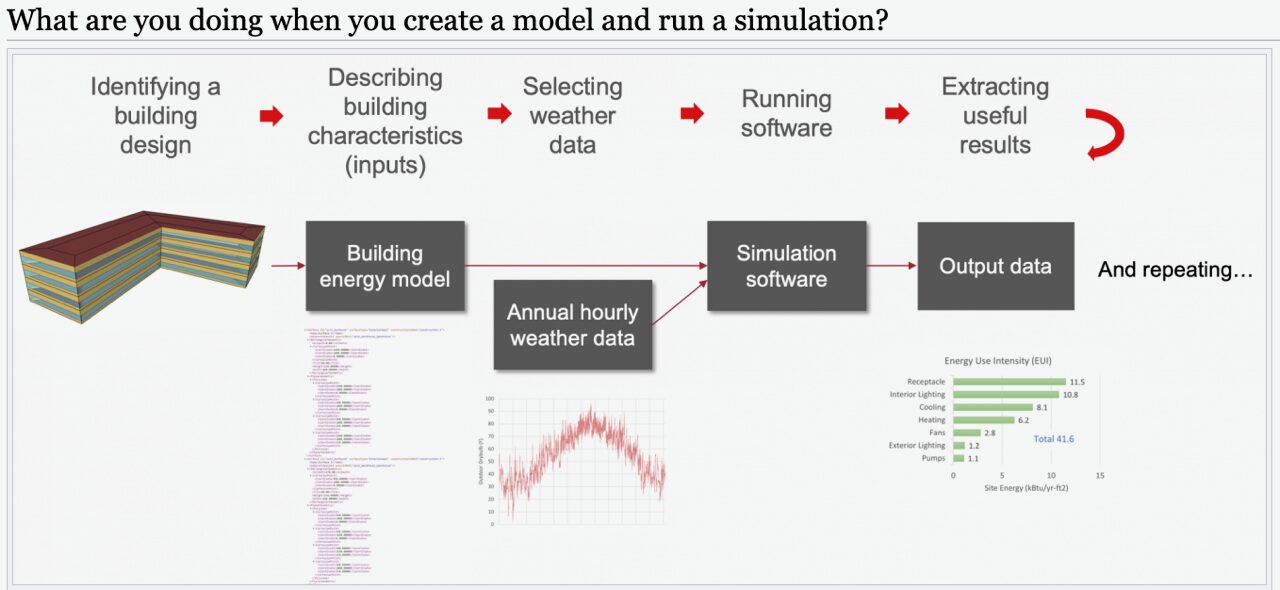What do you think about the growth of energy modeling careers in the next few decades? Or how would energy modelers evolve, career wise?
-Wondering Bud
Dear Wondering Bud,
I’m reasonably certain that we’ll continue to have buildings in the next few decades — and if we don’t, the future of energy modeling careers probably won’t be our top concern.
Given that, people will continue to want to know how buildings will perform and they’ll look to you to help advise. But, the metrics by which we judge a “good” building and a “bad” one may shift. At a fundamental level, our task is to help make technical decisions based on limited resources; moving forward this may not be focused on energy.
We should stop thinking of it as energy modeling, and start thinking of it as building performance prediction. Any way you look at it, there are a lot of interesting pivots coming up.
We’re beginning to see a shift from energy-based goals to ones centered on GHG reduction, grid harmonization, and resiliency. Today’s high performance buildings have deep energy efficiency and advanced controls, often with renewables. With our shifting focus, these will still be valuable, but the specific technologies and optimal control strategies may differ. In a similar vein, your energy efficiency expertise will also be a critical foundation to build on. Performance modeling goes beyond efficiency; the same modeling know-how can be applied to optimize for new metrics and to characterize technologies and control strategies in a different modeling environment.
So, how do we evolve? Research is needed to understand where future-looking decisions will differ from today’s, such as choices related to metrics, fuel choice, operational strategies, and loading order. (Bonus, this is an excuse to learn!) We expect to see a deeper emphasis on load management and we’ll need to know more about grid interaction and neighborhood-scale planning. Building demand prediction, especially short-term (which is notoriously hard to nail down), will be critical as we move towards grid harmonization. We’ll also continue to see a need for uncertainty analysis, particularly with the changing climate.
To stay up to date, the IBPSA-USA resources are a great place to start. As a member, you can stream to your heart’s content. Our annual conferences are also a rich resource, both for technical content and to have the chance to catch up with all of your modeling friends.
Carrie Brown, PhD
IBPSA-USA President
Director, Resource Refocus LLC
carrie@resourcerefocus.com
Do you have anything to add or your own answer to contribute? Please share your thoughts by emailing askamodeler@ibpsa.us; you are an expert too! Do you have your own question for the expert? Submit your question to be considered for a future column. Note that questions requiring an immediate response should be submitted to the community of experts at unmethours.com. If you are interested in replying to a question as a featured expert or have any other feedback about Ask a Modeler please email askamodeler@ibpsa.us.







